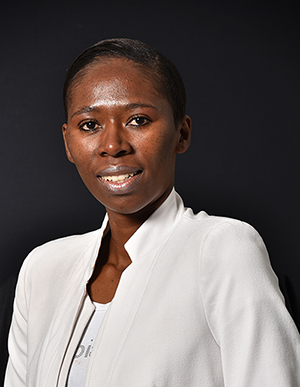College of Human Sciences
Women more vulnerable than ever

Lefatshe Moagi-Venter, Lecturer: International Relations Unit and African Feminism Co-ordinator: Thabo Mbeki African Leadership Institute
THE COVID-19 pandemic has brought sorrow while the world was geared and ready to implement the Beijing+25 platform for action, UN Generation Equality and related conventions aimed at enforcing the measures to eliminate gender inequality.
In the context of restrictions provided by the national and international governments to follow the rules and guidelines for safety measures, we must be careful how we respond to the pandemic and not forget the increasing numbers of homes facing gender-based violence and femicide.
The COVID-19 pandemic has increased gender inequality as women are vulnerable to having no access to health care under threat. The pandemic is literately exposing the shallow response of the justice system in protecting marginalised groups.
In accordance with the Disaster Management Act regulations, South Africa is under lockdown and during this families are reduced to doing only minimal shopping and essential activities.
According to People Opposing Women Abuse and Rise Up Against Gender Based Violence, to name a few feminist organisations, about 87 000 cases of gender-based violence and femicide have been reported to the police only one week into the national lockdown in South Africa.
The lockdown guidelines see many families being trapped with abusers.
Social media platforms can only be accessible to the predominantly elite and middle class due to the diverse and economic position of South Africa, where data and airtime are expensive.
With the possibility the lockdown might be extended, as feminist activists we have a social responsibility to create awareness and ensure gender-based violence and femicide does not continue during the lockdown.
Every three hours once woman is murdered in South Africa.
COVID-19 is a major scare and health safety of people is important, yet we see more support from private sectors to provide relief for ailing business that will be affected negatively.
These resources should also be channelled to providing support structures for extensive safety and wellness of women against violence in our communities. Not only is South Africa grappling with the socio-political aspects of the social restrictions on social distancing in our homes, there are no well organised structures within the justice system to have the necessary space to deal immediately with gender-based violence now.
According to the World Health Organisation, South Africa is not alone as violence against women and children is increasing globally. Data have been recorded from the UK, France, China and the US, to name a few states that have been reporting a rise in GBV.
The Emergency Action Plan, Rapid Response Team, Thuma Mina initiatives are placed on hold as the entire world is responding to how to deal effectively with this Covid-19 pandemic.
We see the lockdown guidelines during this crisis are constantly relaxed and amended daily yet the failure to address the restrictions regarding gender violence in our communities harshly are not addressed.
Women subject to intimate partner violence and their children who will be exposed to violence are vulnerable as family members spend more time in close contact and families unable to cope with additional stress and potential job losses as economic insecurity grows will increase poverty for women.
The danger of being quarantined in isolation with an abuser is more dangerous than COVID-19 and women fear to leave their homes to report it. We urgently hope our government is taking note regarding that danger.
* By Lefatshe Moagi-Venter | 6 April 2020
This article first appeared in the Pretoria News and is used by permission. You can read the original here in PressReader.
Publish date: 2020/04/14

 Unisa co-hosts G20 community outreach in the Eastern Cape
Unisa co-hosts G20 community outreach in the Eastern Cape
 Unisans gain membership of prestigious science academies
Unisans gain membership of prestigious science academies
 Advocating for disability transformation through servant leadership
Advocating for disability transformation through servant leadership
 Unisa Press continues to illuminate the publishing space
Unisa Press continues to illuminate the publishing space